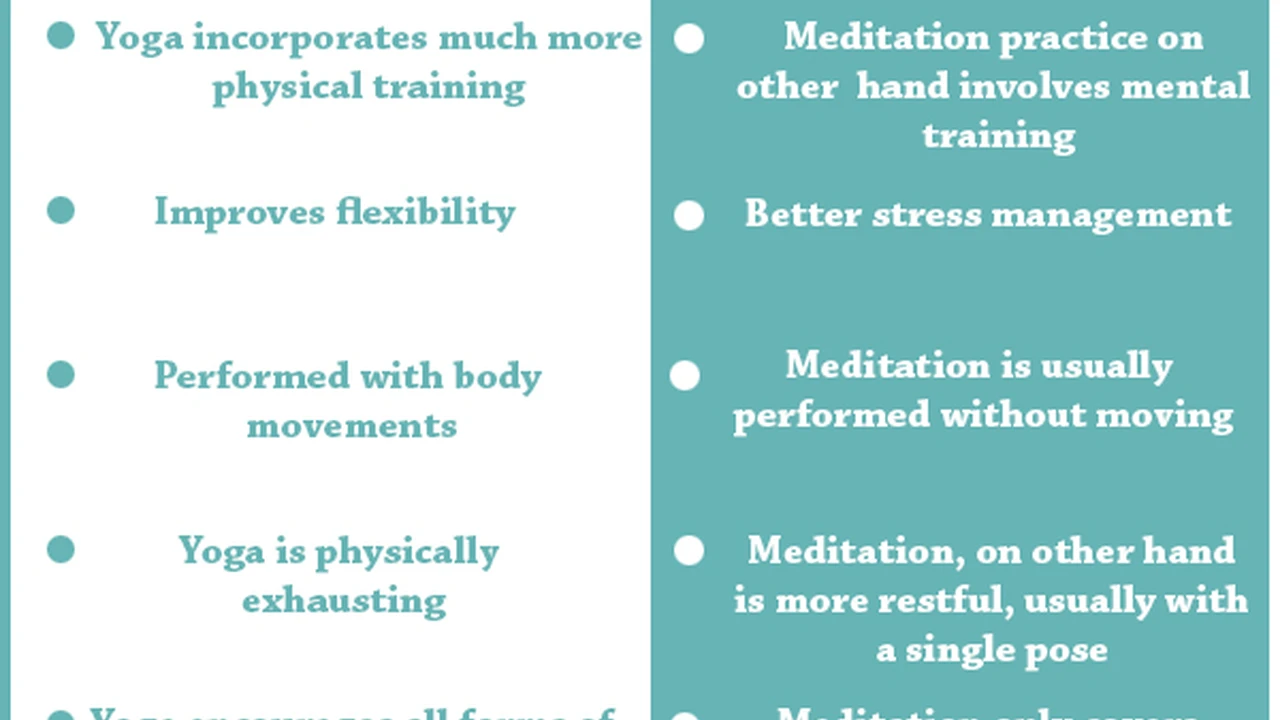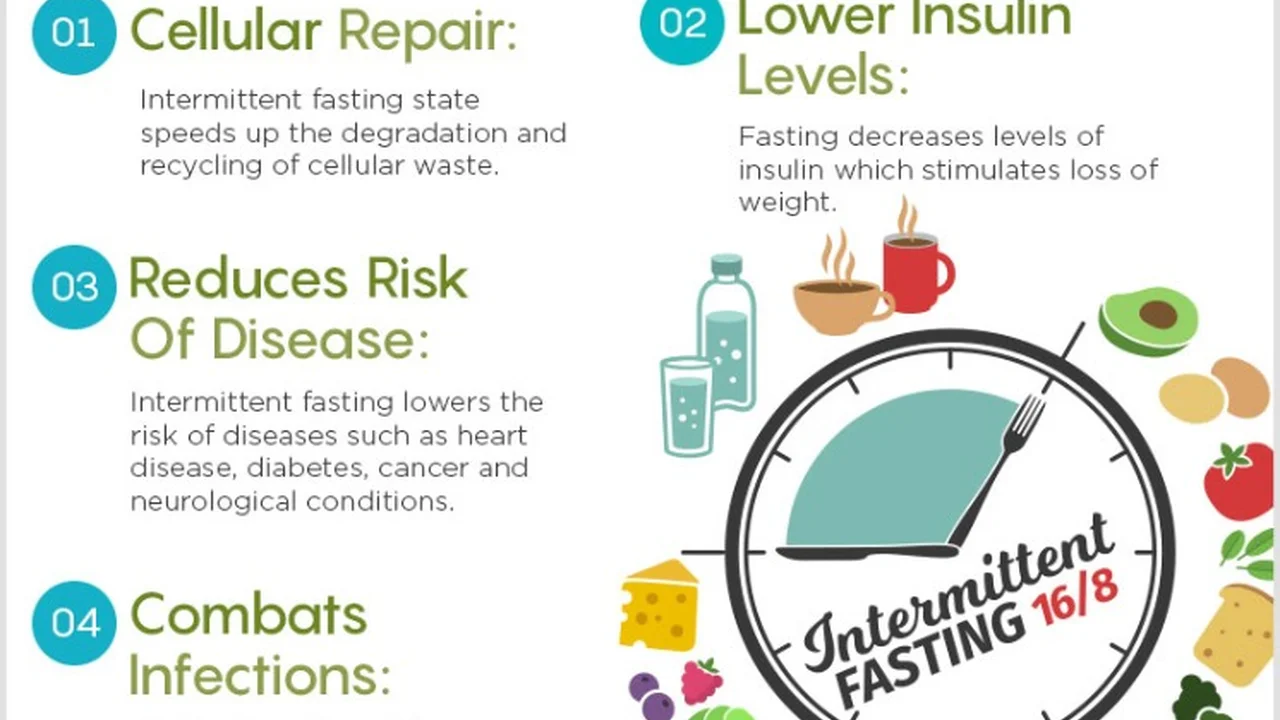Comparing Meditation vs. Yoga for Stress Relief
Debunk common lifestyle myths and separate fact from fiction. This article addresses popular misconceptions about health and wellness. Make informed choices based on evidence-based information for a healthier lifestyle.

Understanding the Prevalence of Health and Wellness Misconceptions
In today's information age, we are bombarded with health and wellness advice from all sides. From social media influencers to well-meaning friends, everyone seems to have an opinion on what constitutes a healthy lifestyle. However, not all of this advice is based on solid scientific evidence. In fact, many common lifestyle beliefs are simply myths passed down through generations or perpetuated by marketing campaigns. These misconceptions can lead to confusion, wasted effort, and even harm to our health. It's crucial to be able to distinguish fact from fiction to make informed decisions about our well-being.
Myth 1 The Detox Diet Delivers Miraculous Results
One of the most pervasive myths in the wellness industry is the idea that detox diets can magically rid our bodies of toxins. These diets often involve restrictive eating plans, juice cleanses, or specialized supplements. While they may promise rapid weight loss and improved energy levels, the truth is that our bodies are already equipped with efficient detoxification systems: the liver and kidneys. These organs work tirelessly to filter waste products and eliminate toxins naturally. There is no scientific evidence to support the claim that detox diets can enhance this process. In fact, some detox diets can be harmful, leading to nutrient deficiencies, electrolyte imbalances, and dehydration. Instead of relying on quick fixes, focus on supporting your body's natural detoxification processes by eating a balanced diet, staying hydrated, and getting regular exercise.
Myth 2 Sugar is the Ultimate Villain in Your Diet
Sugar has become a scapegoat in the world of nutrition, often blamed for everything from weight gain to chronic diseases. While it's true that excessive sugar consumption can be detrimental to our health, it's important to differentiate between naturally occurring sugars and added sugars. Naturally occurring sugars, found in fruits and vegetables, come packaged with fiber, vitamins, and minerals, which slow down their absorption and mitigate their negative effects. Added sugars, on the other hand, are processed and refined, providing empty calories with no nutritional value. These are the sugars we should limit in our diets. The key is moderation. Enjoying a piece of fruit or a small treat occasionally is perfectly fine as part of a balanced diet. However, be mindful of hidden added sugars in processed foods, sugary drinks, and condiments.
Myth 3 You Need to Exercise Every Day for Optimal Health
The idea that you need to exercise every day to reap the benefits of physical activity can be daunting and discouraging for many people. While daily exercise is certainly commendable, it's not a necessity for everyone. The American Heart Association recommends at least 150 minutes of moderate-intensity aerobic activity or 75 minutes of vigorous-intensity aerobic activity per week, spread out over several days. This means you can achieve significant health benefits by exercising just a few times a week. Rest days are also crucial for allowing your muscles to recover and rebuild. Overtraining can lead to injuries, fatigue, and burnout. Find a workout routine that fits your lifestyle and gradually increase the intensity and duration as you get fitter. Remember, consistency is key, and even small amounts of exercise can make a big difference.
Myth 4 Eating Fat Makes You Fat A Deep Dive into Dietary Fats
For decades, fat was demonized as the primary culprit behind weight gain and heart disease. However, our understanding of dietary fats has evolved significantly in recent years. We now know that not all fats are created equal. There are healthy fats, such as unsaturated fats found in avocados, nuts, seeds, and olive oil, which can actually promote heart health and support various bodily functions. These fats provide essential fatty acids that our bodies cannot produce on their own. On the other hand, unhealthy fats, such as saturated and trans fats found in processed foods, fried foods, and fatty meats, can raise cholesterol levels and increase the risk of heart disease. The key is to choose healthy fats over unhealthy fats and to consume them in moderation. Don't be afraid to include healthy fats in your diet, but be mindful of portion sizes.
Myth 5 Multivitamins are a Substitute for a Healthy Diet The Truth About Supplements
Multivitamins are often marketed as a convenient way to fill nutritional gaps and ensure optimal health. However, they should not be viewed as a substitute for a healthy diet. While multivitamins can provide some essential vitamins and minerals, they cannot replicate the complex array of nutrients and phytochemicals found in whole foods. Whole foods also provide fiber, which is essential for digestive health and satiety. Furthermore, some nutrients are better absorbed when consumed together in whole foods. Multivitamins can be beneficial for individuals with specific nutrient deficiencies or those who have difficulty meeting their nutritional needs through diet alone. However, for most people, a balanced diet rich in fruits, vegetables, whole grains, and lean protein is the best way to obtain the nutrients they need.
Recommended Products and Their Uses in Debunking Lifestyle Myths
Product 1 Omega-3 Supplements Supporting Heart Health and Debunking the "All Fat is Bad" Myth
Use Case: Many people are hesitant to consume fats, believing they will lead to weight gain and heart problems. Omega-3 supplements, derived from fish oil or algae, are a great way to introduce healthy fats into the diet and support heart health. They help debunk the myth that "all fat is bad" by showcasing the benefits of specific types of fats.
Scenarios:
- Scenario 1: A person who avoids all fats can start by taking a small dose of omega-3 supplements daily and gradually incorporating healthy fat sources like avocados and nuts into their diet.
- Scenario 2: An athlete looking to improve performance and reduce inflammation can benefit from higher doses of omega-3 supplements.
Comparison:
- Fish Oil vs. Algae-Based Omega-3: Fish oil is a more common and generally cheaper source, but algae-based omega-3 is suitable for vegetarians and vegans. It also avoids potential contaminants found in fish.
- EPA vs. DHA: Both are essential omega-3 fatty acids, but EPA is more associated with anti-inflammatory effects, while DHA is crucial for brain health. Consider a supplement that contains both.
Price Range: $15-$50 per bottle (depending on brand and concentration).
Product 2 High-Fiber Cereal Aiding Digestion and Challenging the Detox Diet Myth
Use Case: High-fiber cereals help promote regular bowel movements and support the body's natural detoxification processes, challenging the need for restrictive detox diets. They provide a convenient and accessible way to increase fiber intake, which is crucial for gut health and overall well-being.
Scenarios:
- Scenario 1: Someone considering a detox cleanse can instead opt for a daily serving of high-fiber cereal with fruit and yogurt.
- Scenario 2: Individuals struggling with constipation or digestive issues can incorporate high-fiber cereal into their breakfast routine.
Comparison:
- Bran Cereals vs. Whole-Grain Cereals: Bran cereals are typically higher in fiber, but whole-grain cereals offer a broader range of nutrients.
- Added Sugar Content: Choose cereals with minimal added sugar to maximize the health benefits.
Price Range: $3-$7 per box.
Product 3 Plant-Based Protein Powder Supporting Muscle Growth and Debunking the Meat-Centric Protein Myth
Use Case: Plant-based protein powders demonstrate that you don't need to rely solely on meat to meet your protein needs. They offer a convenient and complete protein source for vegetarians, vegans, and anyone looking to diversify their protein intake. This product is particularly useful for challenging the misconception that animal protein is superior to plant protein.
Scenarios:
- Scenario 1: A vegetarian athlete can use plant-based protein powder to supplement their protein intake after workouts.
- Scenario 2: Someone trying to reduce their meat consumption can use plant-based protein powder in smoothies or baking.
Comparison:
- Soy Protein vs. Pea Protein vs. Brown Rice Protein: Soy protein is a complete protein source, but some people may be allergic to soy. Pea protein is a good alternative and is easily digestible. Brown rice protein is another option, but it may not be a complete protein on its own.
- Taste and Texture: Plant-based protein powders can vary in taste and texture. Sample different brands and flavors to find one you enjoy.
Price Range: $20-$60 per container (depending on brand and size).
Product 4 Mindfulness Apps Helping to Reduce Stress and Busting the "Always Busy" Lifestyle Myth
Use Case: Mindfulness apps promote relaxation and stress reduction, challenging the myth that a constantly busy lifestyle is necessary for success and happiness. They provide guided meditations and mindfulness exercises that can be easily integrated into daily routines.
Scenarios:
- Scenario 1: Someone feeling overwhelmed by their busy schedule can use a mindfulness app for a few minutes each day to practice meditation and reduce stress.
- Scenario 2: Individuals struggling with anxiety or sleep problems can benefit from using mindfulness apps regularly.
Comparison:
- Headspace vs. Calm vs. Insight Timer: Headspace offers structured meditation courses, while Calm focuses on sleep and relaxation. Insight Timer provides a vast library of free meditations from various teachers.
- Subscription Costs: Many mindfulness apps offer free trials or basic versions, but premium features often require a subscription.
Price Range: Free (with limited features) to $60-$100 per year for premium subscriptions.
Product 5 Ergonomic Office Chair Promoting Better Posture and Debunking the "Sitting is the New Smoking" Myth
Use Case: While prolonged sitting can be detrimental, an ergonomic office chair promotes better posture and reduces the negative effects of sitting, challenging the "sitting is the new smoking" myth. It encourages proper alignment and provides support for the back, neck, and shoulders, minimizing strain and discomfort.
Scenarios:
- Scenario 1: Someone who spends long hours working at a desk can invest in an ergonomic office chair to improve their posture and reduce back pain.
- Scenario 2: Individuals recovering from back injuries can benefit from the support and adjustability of an ergonomic chair.
Comparison:
- Mesh Chairs vs. Upholstered Chairs: Mesh chairs are more breathable and provide better airflow, while upholstered chairs offer more cushioning and support.
- Adjustability Features: Look for chairs with adjustable height, armrests, lumbar support, and seat depth.
Price Range: $100-$1000+ (depending on brand and features).
Practical Strategies for Identifying and Avoiding Health Misinformation
- Check the Source: Evaluate the credibility of the source providing the information. Is it a reputable scientific organization, a qualified healthcare professional, or a biased marketing campaign?
- Look for Evidence: Seek out evidence-based information supported by scientific research. Be wary of anecdotal evidence, testimonials, and unsubstantiated claims.
- Be Skeptical of Quick Fixes: If something sounds too good to be true, it probably is. Beware of products or diets that promise rapid weight loss, miraculous cures, or instant results.
- Consult a Healthcare Professional: If you have any doubts or concerns about health information, consult a qualified healthcare professional for personalized advice.
- Cross-Reference Information: Compare information from multiple sources to get a well-rounded perspective.
Empowering Yourself with Evidence-Based Knowledge for a Healthier Lifestyle
By arming yourself with evidence-based knowledge and developing critical thinking skills, you can navigate the complex world of health and wellness information with confidence. Don't be afraid to question common beliefs and seek out reliable sources of information. Remember, your health is your most valuable asset, and making informed decisions is the key to a healthier and happier life.
:max_bytes(150000):strip_icc()/277019-baked-pork-chops-with-cream-of-mushroom-soup-DDMFS-beauty-4x3-BG-7505-5762b731cf30447d9cbbbbbf387beafa.jpg)






